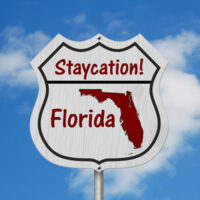How Does Probate Work If The Decedent Was Not A Legal Resident Of Florida?

If you moved to Florida late in life, you are in good company. A common topic of conversation in Florida is how rare it is to meet a native Floridian above the age of 30. Some people settle in Florida during their working years, while others choose it as a retirement destination, and then there are those who go to Florida for extended visits but cannot bring themselves to call it home. Perhaps your social circle involves some part-time denizens of Florida. It is to everyone’s benefit that many retirees enjoy traveling to and from Florida frequently; this situation does not cause problems in probate court unless there is ambiguity about which state was the person’s legal residence. Even if the person was not a legal resident of Florida, there still might be some unfinished business that involves the Florida probate courts. If you are the personal representative of the estate of someone who resided in Florida part-time, contact an Orlando probate lawyer.
Understanding Legal Domicile in Probate Cases
The state whose probate courts have jurisdiction to administer a deceased person’s estate is the state which was the decedent’s legal domicile at the time of his or her death. “Domicile” is a legal term meaning “official home.” Even if you reside in more than one state, only one of them can be your legal domicile. To establish legal domicile in Florida, you must do more than rent an apartment, buy a house, or have your mail forwarded here. You should get a Florida driver’s license and register to vote in Florida.
Florida Probate for Non-Florida Residents?
The probate courts have issued rulings on matters of jurisdiction when there is room for disagreement about the decedent’s legal domicile. If Florida was the person’s legal domicile, that is where the court should administer his or her estate. In some cases, though, you can open the estate for probate in Florida even if the decedent was not a legal resident. One scenario where you can do this is if the decedent owned property in Florida despite not living here full-time. If you do this, then the Florida probate court will only distribute the assets that the decedent held in Florida; the decedent’s other property will go through probate elsewhere. The other scenario is where the decedent owed money to a Florida-based creditor. In situations like this, the creditor can open the estate for probate in a Florida court, but the only purpose of the Florida probate case is the collection of this debt. The rest of the decedent’s assets and debts will go through probate in another jurisdiction.
Contact Gierach and Gierach About Probate Cases Involving Part-Time Residents of Florida
A probate lawyer can help you in your task as personal representative of the estate of a decedent who owned assets or owed debts in Florida but did not permanently settle here. Contact Gierach and Gierach, P.A. in Orlando, Florida to discuss your case.
Source:
leg.state.fl.us/statutes/index.cfm?App_mode=Display_Statute&URL=0700-0799/0733/0733.html
